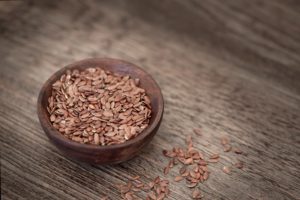What is Seed Cycling?
 Seed cycling is gaining traction in the naturopathic world. So, what is seed cycling? Well, as the name infers, seed cycling involves cyclically adding seeds to your diet with the goal of improving issues related to the female reproductive system.
Seed cycling is gaining traction in the naturopathic world. So, what is seed cycling? Well, as the name infers, seed cycling involves cyclically adding seeds to your diet with the goal of improving issues related to the female reproductive system.
Seed cycling claims to balance hormones to improve symptoms and issues associated with the menstrual cycle, menopause, and post-menopausal states. As a naturopathic remedy, it’s gained traction with women looking for healthier lifestyles and women trying to avoid adding more medications to their daily routine.
Some of the benefits claim to help regulate periods, reduce acne, ease menopausal symptoms (hot flashes, night sweats, fatigue, mood swings) and even help to treat PCOS, endometriosis, and fertility issues. Some women have also claimed it can improve thyroid hormone levels, aid in hair health, lead to weight loss, and reduce water retention and cellulite.
The process isn’t complicated, but that doesn’t mean you can just start consuming any seed all willy-nilly. There are specific seeds, namely flax, pumpkin, sesame, and sunflower, that must be consumed at the appropriate time of the month.
Many seed enthusiasts add their seeds to smoothies, protein shakes, or as a topping for their oatmeal or yogurt. It should be noted that there are slight variations in the process depending on who you ask; however, consensus involves consuming 1 tablespoon of both freshly ground flax and pumpkin seed per day for the first 13-14 days of the menstrual cycle. During the second half of the cycle (the luteal phase), 1 tablespoon of both freshly ground sunflower and sesame seeds is consumed until the 1st day of the next cycle.
For women with an irregular cycle, menopausal, or post-menopausal, this schedule is not as easy to follow and can be frustrating at first. Instead, these women can initiate their seed cycle on the 1st of the month or by using the moon phases as a guide. If they choose to go with the moon phases, day one begins with the new moon. And yes, you read that right. Apparently, we can now sync our “time of the month” and diet with the moon and stars. Pretty *stellar* right? Okay, jokes aside, how does this work?
The seeds are believed to regulate hormone levels based on what the body needs, thus, optimizing levels to resolve symptoms caused by hormonal fluctuations and imbalances. They either promote or restrict levels of estrogen or progesterone. More specifically, phytoestrogens in flax seeds are thought to increase or decrease estrogen levels. The Zinc from pumpkin seeds is believed to promote progesterone production. Lignans from sesame seeds can either inhibit estrogen levels or stimulate estrogen receptors on cell surfaces. And finally, Vitamin E found in sunflower seeds is said to boost progesterone levels.
At this point, you may be wondering, if seed cycling really has all these benefits, why haven’t I heard of it before? Well, to be blunt, that’s because the scientific evidence confirming any of these claims is limited to non-existent. Although, advocates of seed cycling boast positive hormonal changes in as little as a few months; most of the research on consuming seeds does not seem to produce a measurable effect on estrogen or progesterone levels for menstruating women.
There is, however, some research to suggest in post-menopausal women that a diet containing flax or sesame seeds regularly can lead to some mild benefits, including a reduction in hot flashes. However, even these results were similar to the placebo used in that study. But we are trying to be optimistic here!
Despite the weak research backing, many women choose to partake in seed cycling. And that’s okay in our book because it’s not harmful. In fact, consuming seeds can even help to improve the overall quality of your diet and health. Seeds contain nutritional properties like protein, healthy fats, and fiber.
Allow me to be as dramatic as possible for a second: Seed cycling SHOULD NOT be used as a form of birth control!! The science is severely lacking and seed cycling is not an approved birth control method by the American College of Gynecology and Obstetrics (ACOG), the Centers for Disease Control (CDC), or the Food and Drug Administration (FDA).
Overall, seed cycling claims to be the solution for many unfavorable issues. But don’t go running to the store to buy endless seeds just yet. If you are a seed advocate, we are glad that you found something that makes you feel happier and healthier. We remain optimistically pessimistic (is that even a thing), and we will patiently wait with our spoons for more research to guide us.
What Is Seed Cycling? Effects on Hormones and Menopause (healthline.com)
Does Seed Cycling Help Balance Hormones? – Scientific American
Does Seed Cycling Help Balance Hormones? | Nutrition Diva (quickanddirtytips.com)
